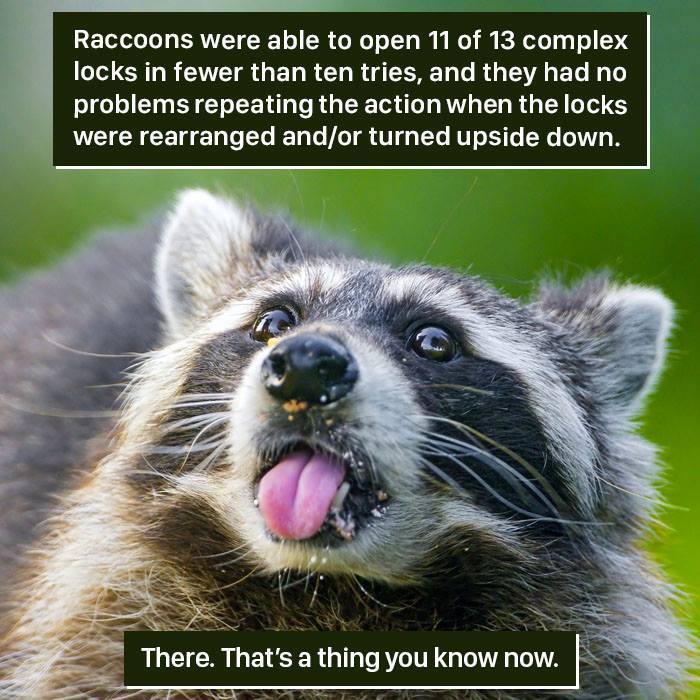
The us presidency is one of the most important and powerful offices in the world. Presidents have great influence over the government, and their decisions have the potential to affect the lives of all Americans.
During the history of the us presidency, the president has had an increasing number of responsibilities and powers. However, these responsibilities and powers are still limited by the Constitution. The President is responsible for a variety of tasks that can be difficult to accomplish, such as addressing foreign policy or dealing with the economy.
As the president has expanded his responsibilities and power, the executive branch has also expanded its administrative structure to meet those needs. The presidency is now a complex organizational institution that includes hundreds of people who provide advice and assistance to the President.

In addition, there are a wide array of institutions that help to administer and regulate the presidential office. These include the Executive Office of the President and the Office of Management and Budget, among others.
The Modern Presidency
In the first half of the twentieth century, the modern presidency was a result of the New Deal programs that Franklin D. Roosevelt (FDR) and the Democratic Party introduced into Congress to address the economic crisis of the Great Depression. These programs dramatically altered the size of the national government and changed the relationship between the congressional legislature and the executive branch.
These changes transformed the us presidency, as FDR and his administration began to assume unprecedented amounts of power. The president's ability to issue executive orders and make treaties without congressional consent became the hallmark of the new presidency.
The modern presidency was a product of the New Deal and the increased influence of the Democratic Party in the United States. These programs were designed to increase the capacity of the federal government to respond to the country's economic and social problems, as well as to strengthen the nation's international relationships.

It also aimed to expand the presidency's legislative power. It began with the creation of the Executive Office of the President in 1939, and it continued in the postwar period through various legislation that made the executive office more powerful.
Another change was the granting of the presidential veto power, which allows the president to block certain laws from becoming law. This gave the president a broad range of options for governing the country, but it also increased public cynicism about politics and elected officials.
The veto power is the most powerful and controversial of all the president's powers. Many Presidents have used their veto power to override congressional action, including actions that they believe violate the Constitution and its principles. The most notable of these instances include the executive order that imposed a military tribunal system to try terrorist suspects or the decision by President George W. Bush to deny the right of enemy combatants to access civilian courts.
FAQ
Have you ever wondered what amount of trash is generated each day worldwide?
According to the United Nations the average person creates more than 2.5 lbs of waste daily. That adds up over 25 billion kilos of garbage every year.
The majority of this garbage ends up in incinerators or landfills. But what happens when the dumpsters become full? All that trash ends up being shipped out of country. It then gets dumped in foreign countries, polluting their ecosystems. However, now we know where all that trash goes. Mike Sexton is his name. He runs Waste Watchers, a company that monitors the movements of trucks carrying trash all across North America. He then gives us a report on what happens next.
Sexton stated that he finds the job very satisfying. CNN asked Sexton if he thought it was a lot of fun. "We often see large rigs passing through our town and we will follow them. "Sexton began following truck drivers almost 20 years ago.
He said, "I fell in love with it."
Sexton loved the story about the driver who pulled over at an abandoned gas station close to Los Angeles. Sexton described, "The guy was looking somewhere to put his load." "He drove along the road and saw this structure. So he pulled over and went inside. "There were two huge roll-off containers there filled with stuff. The guy took everything out and started filling up the truck again. He then looked around and decided to load everything. There were tires, rags. furniture, mattresses. boxes, bottles, cans. "It was just a total mess. But it had been cleaned before he arrived. There wasn’t trash everywhere."
What is the explanation? Well, the answer is that this particular location used to be part of a recycling center.People who learned about this facility would drive here to recycle their trash. Sexton explained that people would bring home their household items, and then take them to the building. After they were done, they would dispose of the empty containers.
This could happen hundreds of time per week. The truck can be stopped running if it is so full of junk that it has to come back hundreds of times per week. The truck eventually stops running and the owner decides that it is time to get rid of the vehicle.
However, trash is not the only problem on our planet.
Most of these particles are made up of tiny pieces of plastic.Some of these plastics end up in landfills or incinerators. Others end up in rivers, oceans or the stomachss of fish.
Experts warn that if there is no change, the world could soon be facing a food shortage. Experts warn that "if we keep going the way we are, we're not going make it," although scientists agree that the world is heading toward disaster. Most people, however, don't seem to be concerned.
What is the most mysterious location on Earth?
Antarctica is the most mysterious continent on Earth.
Why do we find this place so intriguing? Because it is unlike any other spot on Earth.
It is remote and difficult to reach. However, there's more to this location than meets the eye.
You will also find some of the oddest wildlife species in this natural wonder.
So let's explore how this remarkable destination became famous for its mystery.
Antarctica, The South Pole
Antarctica's name is a mystery. Some believe it means "land of ice." Others believe it comes from Greek mythology.
Antarktis is the name Antarktis was given to an island in ancient Greece by Zeus' twin brothers. According to some legends, one of these twins was born in winter. This is why the word "antarctic" was chosen.
Others believe that it is the Greek word anti, which means against, and tropos, which refers to turning. This would signify land turned away the sun.
Whatever the reason Antarctica has always been a fascination for people.
It is the coldest, windiest, driest and highest continent. There are no trees, plants, or animals here because it is too cold.
This frozen wasteland is still alive.
Here, 90 percent live of all species of living things. It is home to approximately half of all world's animal and plant species.
And what makes Antarctica such a unique environment? Here, water is frozen into ice rather than vaporizing into the air.
This results in large masses of ice floating above the ground.
These floating glaciers cover over 80%. These glaciers are getting larger each year.
Since 1960, the Antarctic ice sheets has grown 60ft.
The sea level will rise up to 200 feet if melting continues. This could lead to widespread flooding.
However, not all scientists believe this to be bad news. Some scientists claim that global warming could be good for us. They say that as temperatures rise, the ice sheets might melt faster, causing floods that flush out tons of toxic chemicals from our soil and bodies.
Others warn that this theory sounds like something out of a science-fiction movie.
Is there a Hollywood blacklist of actors?
There is an Hollywood blacklist.
The list is not made public. According to our knowledge, the names of these people aren't known. This is why it matters.
The secret is because the directors and actors on blacklist wouldn't have any job opportunities. Thus, they would leave the industry and studios will lose money. It would mean they would reduce their expenditure on movies. This would result in fewer opportunities available for blacklisted filmmakers. They would then go bankrupt.
This could eventually lead to more victims.
When someone tries making an Oscar winning movie they might be asked for a contract. This means that they can't publicly criticize their employer. The same goes for any director or producer who wants to get nominated for an award.
This is why you'll hear about directors being pressured by producers to take scenes out of their films. Directors might threaten to leave projects that don't reflect their vision.
This is why Hollywood keeps a blacklist. If you speak negatively about your employer, you will likely be fired. It's not good for anyone.
The problem is that many people have been falsely accused. And they've had to fight to clear their name.
This is unacceptable behavior and must be stopped. We must ensure that everyone has the right to express themselves freely.
We need to get rid of Hollywood's blacklist.
How does the brain control the functions of your body?
The brain relays messages to other parts of the body to ensure their functionality. The brain controls everything that happens in your body. It tells your stomach to digest food and your lungs to breathe air; it tells your arms and legs to move.
Your brain is made up billions of nerve cell networks connected in groups known as neurons. Action potentials, which are electrical signals sent by neurons to each other via axons, allow them to communicate with one another. Every neuron has an outer cell membrane that surrounds its nucleus. Channels within the membrane allow ions such potassium and sodium to enter and leave the cells. The electric charge that causes the neuron's fire is created by ion movement.
When a neuron is activated, neurotransmitters release chemicals into the space between it and the next neuron. Neurotransmitters are able to bind to receptors in the second neuron. This opens ion channels that allow ions to flow in and out. In turn, the second neuron also fires.
Neurotransmitter production occurs when a neuron in the presynaptic receives an impulsive signal from another. The impulse travels along the synapse connecting the two neurons. The transmitter binds directly to the receptors in the postsynaptic nervous neuron, and triggers the firing.
Communication within the nervous system is possible thanks to neurotransmitters. They also coordinate activity between different brain parts.
Statistics
- It might not sound like something that's truly plausible — and it is quite rare — but according to a 2015 study published in the Asian Cardiovascular & Thoracic Annals, it's possible to hurt yourself and even break a rib just by sneezing. (romper.com)
- In fact, according to the American Academy of Ophthalmology, you make 15 to 30 gallons of tears each year, which is insane when you think about it. (romper.com)
- In one 2014 study published in the Archives of Medical Science that sought to study the prevalence of these mites, research showed that 41% of the people had them hanging out in their eyelashes. (romper.com)
- Your mouth makes a lot of saliva every day It might seem like way too much, but your salivary glands typically produce anywhere from 0.5 and 1.5 liters a day, according to a 2009 study published in the Journal of Medicine and Life. (romper.com)
- You spend about 10% of your time awake blinking (romper.com)
External Links
How To
Hollywood scandals that stunned the world
Nothing is more shocking that seeing someone be famous for their wrong reasons. But there's also nothing worse than seeing them fall from grace.
The best thing about watching how an industry reacts when it makes mistakes is the best part. Many celebrities have used alcohol and drugs in excess. Some even died young because of it.
The worst part about this is that these same stars come out with their problems and are ridiculed by everyone. We found ourselves in that situation last week.
Heath Ledger gave up after a long career that was successful. He died after succumbing to prescription drugs.
His family and friends struggled to accept his passing, and the media had a field day bashing him publicly.
Heath was once considered one of the most talented actors working today. He was nominated for two Academy Awards for his performance in Brokeback Mountain.
Heath not only acted, but also wrote and directed films including A Knight's Tale. Monster's Ball. Iron Man.
Hollywood loved Heath but he grew too large for his boots. He started taking drugs and drinking heavily. Eventually, he went to rehab and came out clean.
After he had gotten sober, he decided to make amends. He created a documentary called Room 237, which documented the making of The Shining. It was supposed to hit theaters this year. However, it won't until next year.
Heath tried many times to get back into Hollywood. Nothing worked. In fact, he was arrested twice on drug charges.
While we aren't saying Heath shouldn't have been allowed back in the show business, It would have been nice, however, if he had received some help before things got out of control.
We hope Heath’s story serves as a cautionary tale for others who think they might still be able to have it all.